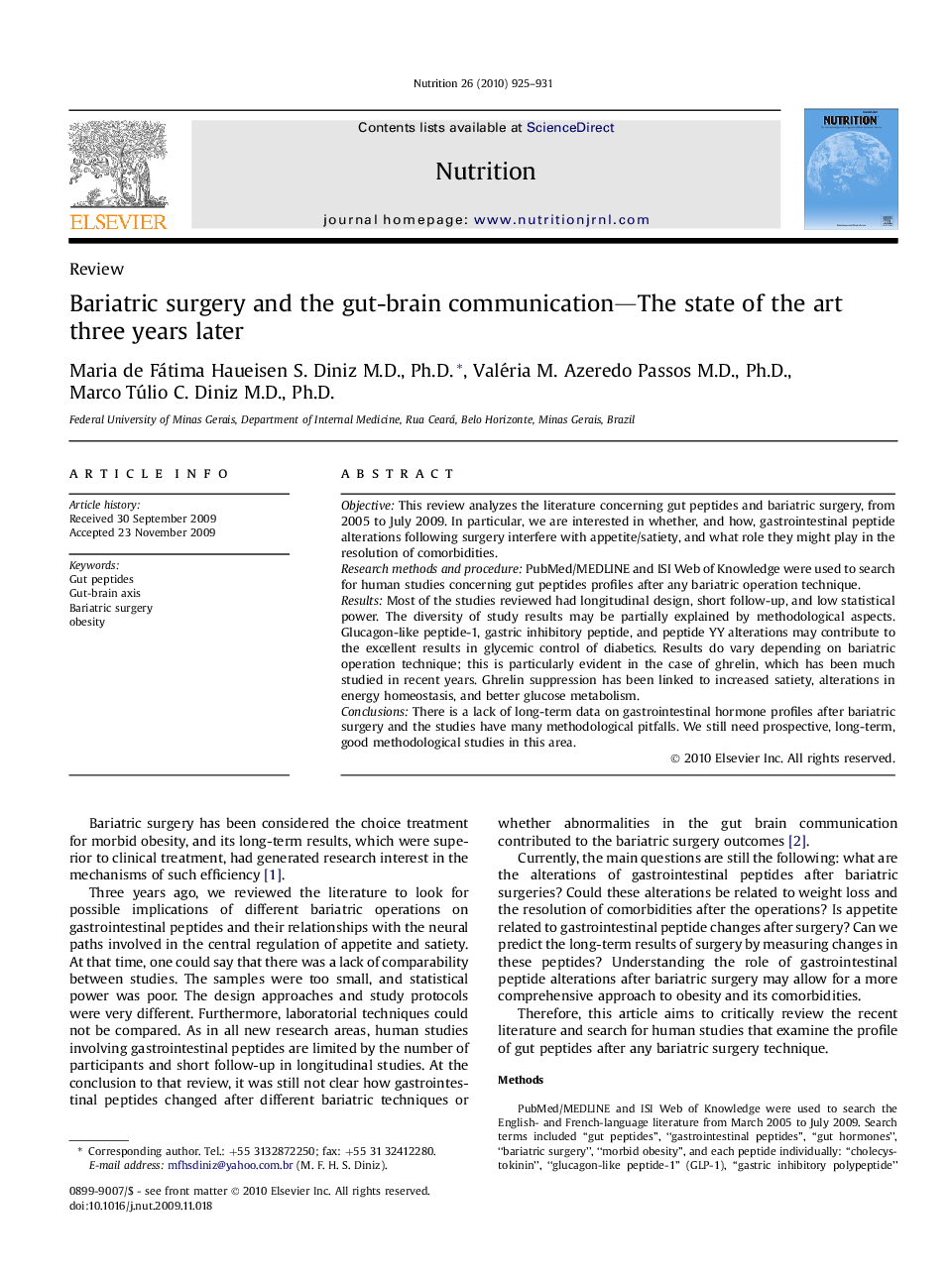| Article ID | Journal | Published Year | Pages | File Type |
|---|---|---|---|---|
| 3276899 | Nutrition | 2010 | 7 Pages |
ObjectiveThis review analyzes the literature concerning gut peptides and bariatric surgery, from 2005 to July 2009. In particular, we are interested in whether, and how, gastrointestinal peptide alterations following surgery interfere with appetite/satiety, and what role they might play in the resolution of comorbidities.Research methods and procedurePubMed/MEDLINE and ISI Web of Knowledge were used to search for human studies concerning gut peptides profiles after any bariatric operation technique.ResultsMost of the studies reviewed had longitudinal design, short follow-up, and low statistical power. The diversity of study results may be partially explained by methodological aspects. Glucagon-like peptide-1, gastric inhibitory peptide, and peptide YY alterations may contribute to the excellent results in glycemic control of diabetics. Results do vary depending on bariatric operation technique; this is particularly evident in the case of ghrelin, which has been much studied in recent years. Ghrelin suppression has been linked to increased satiety, alterations in energy homeostasis, and better glucose metabolism.ConclusionsThere is a lack of long-term data on gastrointestinal hormone profiles after bariatric surgery and the studies have many methodological pitfalls. We still need prospective, long-term, good methodological studies in this area.
